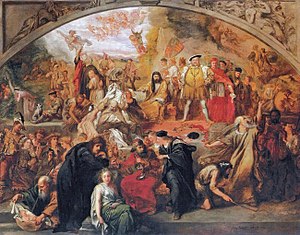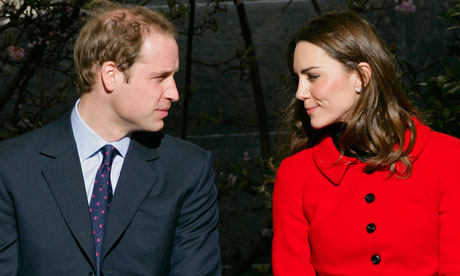A poem about the royal marriage,
Like gilt upon a royal carriage,
Can add some shine to the occasion
And maybe through its sly persuasion
Relieve republicans of doubt,
So they don't spoil the fun day out.
A task befitting, you might guess,
Britain's royal poetess,
(Or per the style guide: poet, female),
But she's not answering my email.
I signed it "from your biggest fan".
Thanks for nothing, Carol Ann.
*
And so, it seems, it falls to me,
For rather less than half her fee
In rhyme robust and metre supple
I'll grab a pen, put Radio 4 on,
Then Duffy-like (not that one, moron)
I'll wait for royal inspiration
To strike me, at which time I'll write,
A poem well-versed and bold and tight.
I mean, just how hard can it be?
If Duffy can do it, so can me.
*
Future princess, common Kate;
As common as the common skate,
Which is to say, quite rare these days,
Unlike their cousins, manta rays.
So Kate's like skates: rare, though without
The rhombic shape and pointed snout,
Or ventral gills or dorsal fin,
Or, one presumes, the prickly skin
(Frankly not sure where this heading,
Or what it's got to do with wedding –
I'll close it out with one more rhyme,
And start again, with Will this time.)
*
Royal William, royal as jelly;
Mates with what's-his-name, Guy Pelly.
Royal as icing, royal as blue.
Royal enough, let's hope, for two.
For he will take this Eastertide,
A common girl to be his bride.
Lovely Kate, despite the fuss,
Is really just like one of us,
Though slightly better situated,
Better dressed and educated,
With better manners, nicer hair,
More expensive dental care.
*
But look beyond the straight white teeth,
What's important lies beneath.
The role itself may not be vital
(Indeed, the job's not worth the title),
But when Queen Kate is so created
The rest of us are elevated;
And royals, in our common eyes
Look less impressive, regal, wise.
Could royalty become extinct
Once commoner and royal are linked?
The monarchy – destroyed by Kate,
Like overfishing killed those skate.
*
Yes, my reasoning is simplistic,
Daft, far-fetched and optimistic.
Forget about it – let's not quibble.
Hang some bunting; have a nibble!
Let's put our politics away,
And just enjoy the magic day.
For first and foremost, it's a wedding –
Boy from Windsor, girl from Reading – Imagine you're an honoured guest,
Wish two crazy kids the best,
Line the route and pray it's sunny.
God bless this waste of public money


















